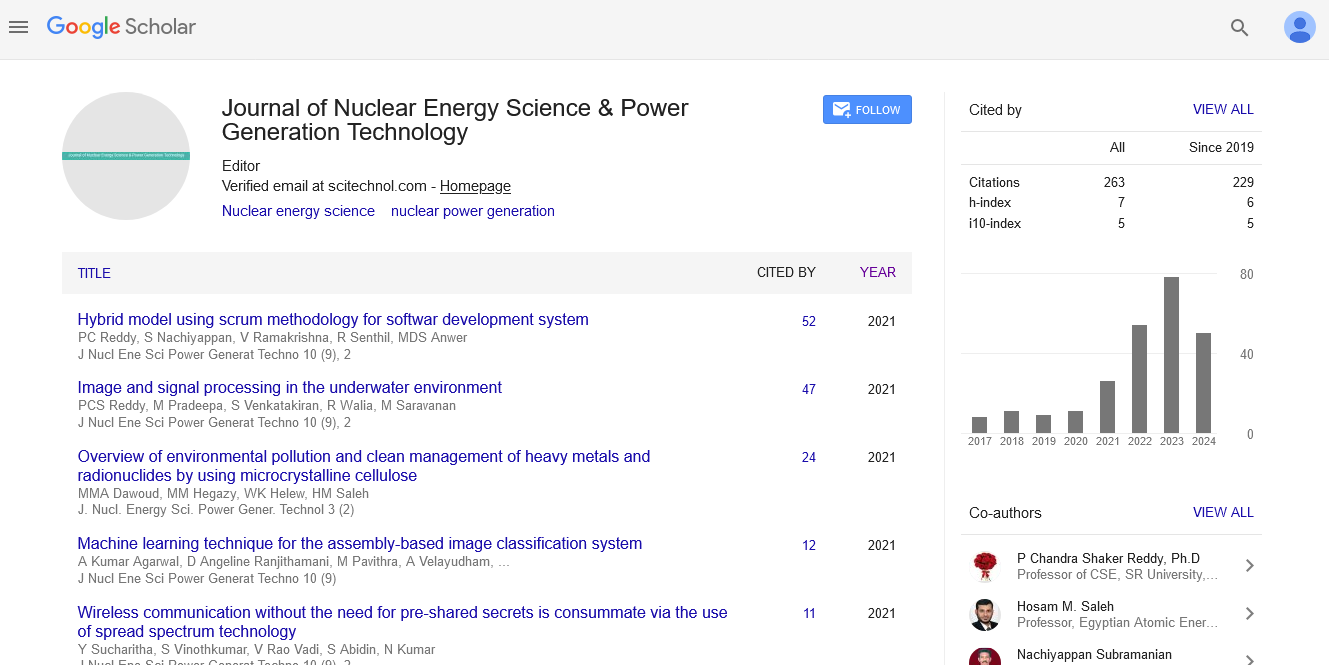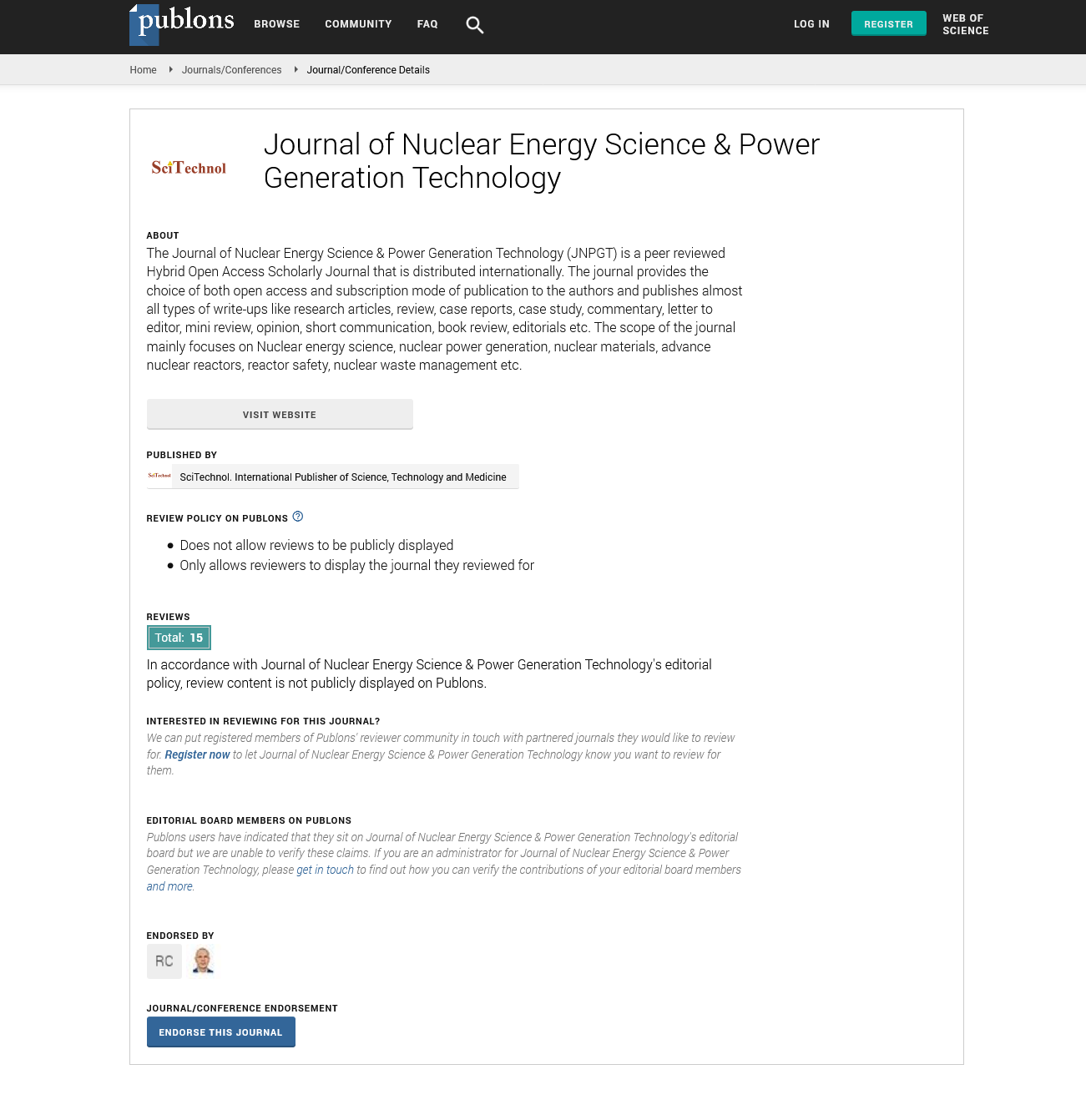Electrochemical energy technologies for grid energy storage
Qiong Cai
University of Surrey, UK
: J Nucl Ene Sci Power Generat Technol
Abstract
Renewable energy resources can deliver sustainable and secure supplies of energy in heating/cooling, transport and electricity generation. However, an electricity system based on intermittent renewable energy sources, such as solar, wind, hydropower, geothermal and marine, gives rise to new challenges concerning the storage and utilization of surplus energy, system operation, and energy supply reliability. Energy storage is essential to help cope with these challenges and facilitate a faster penetration of intermittent energy resources. This presentation reports our work on two electrochemical technologies as promising grid energy storage– electrolysers and batteries. Electrolyers provide a cost-effective and energy efficient route to clean hydrogen production. The optimal control strategies when coupling electrolyser systems with intermittent renewable energies are investigated for the first time. Control strategies considered include maximizing hydrogen production, minimizing electrolyser energy consumption and minimizing compressor energy consumption. Optimal control trajectories of the operating variables over a given period of time show feasible control for the chosen situations. The relative merits of the optimal control strategies are revealed. Sodium ion batteries (NIB) have been considered as a promising next-generation energy storage technology, because of the natural abundance, wide availability and low cost of Na resources. We have been using molecular simulations combined with experiment for designing nanoporous carbons as negative electrode materials. Molecular simulations reveal the intercalation mechanism of Na ions into the nanoporous space with the presence of organic solvent. This is then used to guide the design of the materials for best performance in NIBs, and compared with experimental results.
Biography
Qiong Cai was trained as a Materials Engineer at Tsinghua University (China), and obtained her PhD at University of Edinburgh in Chemical Engineering in 2007. She then spent five years working as a Postdoc Researcher at Imperial College London, specialised in Electrochemical Energy Conversion and Storage Devices including Fuel Cells, Electrolysers and Batteries. She became a Lecturer in Chemical Engineering at Surrey in September 2012 and was promoted to Senior Lecturer in April 2016. She currently holds an EPSRC grant (EP/M027066/1) on developing sodium ion battery for grid energy storage and a flexible grant from the SUPERGEN H2FC Hub on developing low cost materials for polymer membrane fuel cells. Her research groups are working at the interface of materials science and electrochemical engineering, using modelling and simulations combined with experiment for the design of materials for applications in electrochemical energy devices.
Email: q.cai@surrey.ac.uk
 Spanish
Spanish  Chinese
Chinese  Russian
Russian  German
German  French
French  Japanese
Japanese  Portuguese
Portuguese  Hindi
Hindi 

